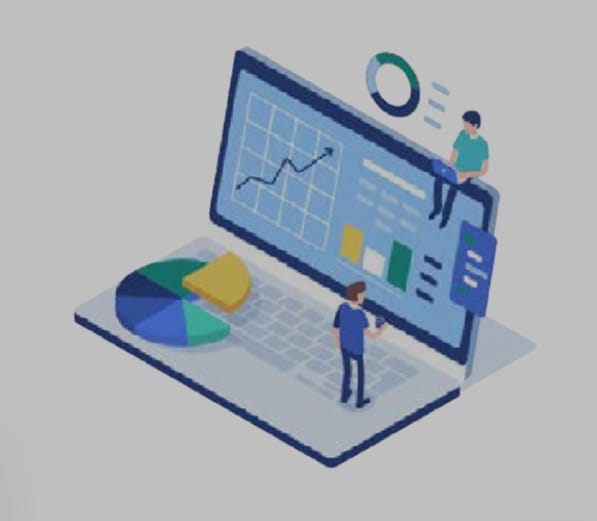Good news for the open social web and open government data

Good evening from Washington, where I’m feeling cautious optimism about a ceasefire in Gaza, followed by a surge in humanitarian aid and return of hostages to their families.
Thanks to everyone who has subscribed to CivicTexts since I last wrote, particularly the members who are supporting this work.
Editor’s Note
The information environment we see in the United States in January 2025 is bad. It’s all about to get much worse, I think, at historically hysterical levels. This will put a premium on trustworthy information and messengers, online and offline. If you haven’t designed a healthier civic information diet yet, please do.
Social media gives us ambient intimacy with people in pain — everywhere.
The fear, anger, grief, uncertainty, and doubt that result from that awareness is ruinous, especially combined with loneliness, the genuine precarity of modern life, ongoing wars, and natural disasters.
Human minds and bodies aren’t made for this overload, which I assess to be a primary driver many people to tune out, turn off, and drop out of news media consumption.
My goal here is to never waste your time and to prioritize stuff that matters across the domains I focus on, from emerging technologies to good governance.
If I fail, I hope you will let me know at alex@governing.digital before you simply unsubscribe. Thank you for your trust and feedback: I never take either for granted.
White House issues key guidance on making public records open and accessible
Earlier today, the White House finally issued the guidance on open government data Congress mandated 6 years ago, on the anniversary of former President Trump signing the bill into law on January 15, 2021.
The irony of publishing guidance on open data as a PDF is …sharp. I’m old enough to remember a White House that modeled open information and digital government by example.
Outgoing Office and Management and Budget Director Shalanda Young also did not share the guidance on her way out the door today, make a statement in a release, or write a blog post — much less host a press conference about it.
The landscape for public access to public data would look different if the Biden administration had done this in 2021 and driven implementation since.
In the void of guidance, chief data officers across government have moved forward with opening and structuring public records, but there’s no replacement for presidential leadership and aggressive oversight.
Instead of leading on opening public records to the public they serve, fixing FOIA, strengthening agency capacity, this White House issued (mandatory!) guidance on open government data on the way out the door.
Obviously, I’m conflicted about the realization of a goal I’d pursued across organizations for the decade.
For folks who might have forgotten what the statute mandated, two canonical principles for open, digital government in the 21st century became law in the United States in January 2019:
- public information should be open by default to the public in a machine-readable format, where such publication doesn’t harm privacy or security
- federal agencies should use evidence when they make public policy
As I wrote at the time, the reform represented “a genuine opportunity to not only improve how the nation makes decisions but embed more openness into how the federal government conducts the public’s business.”
It was a historic, bipartisan win for open government data, after years of trying. Today is another milestone for the open movement, codifying core principles into code. Thanks again to all of the advocates, legislators, watchdogs, members of industry, and journalists who played an essential role in making open government data the law of the land.
Over on LinkedIn, Christopher Marcum, senior statistician in the Office of the Chief Statistician of the United States, told me that guidance does three things Americans should understand:
- “Government agencies need to make data open by default - even if that data cannot be immediately shared.
- agencies must protect privacy and confidentiality in data sharing activities.
- Agencies have to inventory all of their data assets in the interests of public transparency.”
I’ll have more to share about this in the weeks ahead. In the meantime, Corinna Turbes posted a useful summary of the guidance at the Data Coalition, including the requirement for agencies to post open data plans.
In sum, it’s good news for public access to public information. We can all use more of that, in both senses.
Transparency doesn’t build trust. Accountability does.
As Tiago Peixoto found a decade ago, transparency about fraud, waste, corruption, or criminality without accountability can erode trust in the absence of political agency and responsive institutions.
We are now living in a future without it. Speaking truth to power will not be enough to rebuild that lost trust in a web of lies.
Publics must see accountability for corruption, delivered by responsive institutions.
Unfortunately, every institution in the United States has failed to deliver accountability for Donald Trump.
As you may have heard, special counsel Jack Smith submitted a 174 page report regarding his investigation of former President Trump‘s conspiracy to overturn the results of the 2020 election, attempted self-coup, and incitement of seditious mob violence to obstruct the certification of the 2020 election with lies about widespread fraud.
It‘s worth your time, if you have it.
The conclusion is now a grim coda to the story of how the arc of history was bent towards injustice by partisanship, cowardice, and Supreme Court’s delay and decision to place a man above the law, contradicting the word and intent of the people who drafted the Constitution:
The Department's view that the Constitution prohibits the continued indictment and prosecution of a President is categorical and does not turn on the gravity of the crimes charged, the strength of the Government's proof, or the merits of the prosecution, which the Office stands fully behind. Indeed, but for Mr. Trump's election and imminent return to the Presidency, the Office assessed that the admissible evidence was sufficient to obtain and sustain a conviction at trial.

A historic day for the Open Social Web
There were two different inflection points online yesterday that are important to flag.
Web pioneer Anil Dash put it best, so I’ll just quote him:
This is a monumental day for the future of the social web, though it might not be obvious for a little while to come. Mastodon has matured its governance model with a great, solid nonprofit and a thoughtful plan for leadership going forward.
And a coalition of independent leaders and organizations has pushed to open up Bluesky's AT Protocol, also with independent governance and leadership: https://freeourfeeds.com/
These two moves together put the most credible players on solid ground for years to come — and set up these open platforms to enable lots of innovation just when it's needed most. It's vital, as the legacy social networks' leaders reveal their most venal and cynical ambitions, that creators, developers and communities know that the new, open networks will be trusted platforms for years to come. Today's announcements are an incredible and inspiring set of first steps, and I'm thankful to the leadership of both communities for making it possible.
Ensuring the Continuity of Congress
Pregnant people and new parents of infants are given extra support and protected status throughout American society for good reason. Expecting mothers and newborns need a village to successfully navigate that transition. That’s true in Washington, too: these Members of Congress should be able to vote by proxy.
In the future, I still believe the ability to safely and securely vote remotely — not just by proxy — will be seen as a non-controversial, essential capacity for legislators distributed across our vast nation and around the world, wherever they are serving our union.
I am not naïve about the opposition of lawmakers in both parties in past years who have seen these kinds of changes as a threat to power in blocked them. When an institution does not adopt modernization, I always look for who it would affect and how.
I just believe the need for remote voting & oversight is self-evident everywhere around the world.
After years of the coronavirus pandemic has catalyzed rapid adoption of technologies, institutions everywhere have changed with the times, from the tools civil servants use to the expectations of elected officials and constituents who want agencies to and their leaders to deliver on their missions.
Ensuring the continuity of a legislature in the event of war, terrorist attack, natural disaster, or the next pandemic in the years to come is an essential capacity for every great nation. Multiple reports and studies show Congress still isn’t ready.
Our elected leaders in the 119th Congress should make it a goal for every Member to fully represent their constituents wherever they are in our union, online or offline.
Smartphones, satellite Internet, and social media mean that officials in every branch of government can now conduct public business online, whether they’re in a home state or the hallowed halls of Washington.
On the Equal Rights Amendment
As President Biden’s watch comes to an end, there’s considerable pressure for him to take various executive actions.
I had a humbling experience last year at a roundtable at NARA related to one of them.
When I asked about whether the Archivist of the United States (AOTUS) could ratify the Equal Rights Amendment if the President directed her to do so, the AOTUS and deputy AOTUS both said that she legally could not do so, pointing me to a 2020 Office of Legal Council (OLC) opinion which (thankfully) is public for all to read, along with two court decisions and a 2021 OLC opinion.
When I shared that determination on social media, however, I got considerable pushback on that legal position. I would favor Biden doing so, to see what the courts rule with respect to whether it was constitutional for Congress to set a deadline for the states to ratify an amendment.
Thanks to everyone who pushed to get OLC opinions and Congressional Research Service reports online, so I could better educate myself about proposed amendments.
As a result, I was able to read both and and learn about the Amendments Project, which is “a searchable archive of the full text of nearly every amendment to the U.S. Constitution proposed in Congress between 1789 and 2022 (more than 11,000 proposals); records of petitions introduced in Congress between 1789 and 1949 that propose, support, or oppose constitutional amendments (more than 9,000 petitions); and thousands of proposed amendments that never made it to Congress.”
I bet that work was possible because of NARA’s work opening amendment data to the public. As we look ahead to an uncertain year, that’s a laudable reminder of how open government data translates into public knowledge when disclosed and milled into insight.



